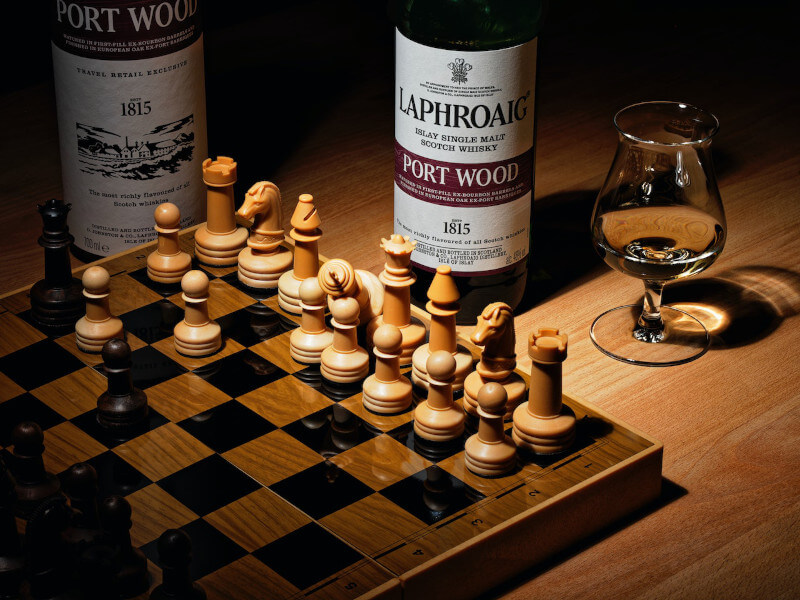You’ve probably experienced the effect that music can have on your disposition. A song has the power to both uplift and inspire deep thought. But have you ever wondered if the music you’re listening to may affect the way a whisky tastes? Envision yourself relaxing with a glass of Glenrothes and some jazz. Will this affect how the drink tastes?
The impact of music on our lives has been substantial since the beginning of time. Some fast food restaurants, for instance, play music with an upbeat speed to encourage customers to eat more quickly. This deceptive practice allows for faster service to more patrons. What a cunning plan of action!
In the past, the culinary genius Heston Blumenthal created a dish called “Sounds of the Sea” that incorporated a variety of senses into the dining experience. The diners’ experience of the seafood was heightened by the sound of breaking waves. Every time the oysters heard a wave, the salty of their flavor intensified.
The way that music complements drinks, particularly whisky, is where attention is shifting now. A distinguished experimental psychologist at Oxford University, Charles Spence, has investigated the impact of sound on the wine-tasting process. However, there is still a lot of unexplored area between music and whisky.
Glenrothes took the initiative to investigate this promising connection. In a recent effort, they titled “Which music sounds best? with Glenrothes” as a sort of experimental concert series. These events, held in East London’s Kansas Smitty’s, attempted to find out if music affects the subtleties of whisky tasting.
Envision this: A warm, low-ceilinged cellar where the signature drink, the Glenrothes Mint Julep, is served to guests to get them in the mood and prime their taste buds. This evening will be a sensory assault, as your sense of hearing and taste collide. Whisky expert Amanda Baxter from Berry Bros. & Rudd poses the challenge: Can different rhythms or pitches alter your perception of the whisky’s flavor?
Three different Glenrothes whiskies, each coupled with a different jazz song, were sampled during these events. Then, they recorded which flavors stood out the most. Bjorn Thorleifsson, a researcher at Goldsmiths, University of London, is currently analyzing these observations. Many people are waiting for Professor Spence to publish his or her comprehensive results, and that day is coming soon.
While I have attended one of these events, I am still undecided as to whether or not music enhances the whisky-tasting experience. My first taste of Glenrothes 1998 featured flavors of vanilla and lemon as I listened to Andy and the Bey Sisters’ Mood Indigo. However, as the music changed, different flavors emerged in the whisky, including fruitier tones, traces of cinnamon, and gingerbread.
Is it possible that the music contributed to this shift, or does whisky alter flavor with each taste test? Whisky’s allure lies in the pleasant surprise it presents with each sip, thanks to its complex flavor profile. The music and atmosphere added to the enjoyment, but it’s unclear how much weight we can give to the music’s role in influencing individual taste.

While Glenrothes has been at the forefront of experimenting with the interplay between music and whisky, several other notable distilleries and brands have ventured into this fascinating territory, striving to understand the profound influence of sound on our senses.
1. Ardbeg and Classical Strains: The renowned Islay distillery, Ardbeg, started a unique experiment. Attendees at one of their events were treated to the peaty Ardbeg Ten Years Old while classical music softly played in the background. Many reported an enhanced appreciation for the whisky’s smoky undertones, suggesting that the refined melodies accentuated the complexities of the spirit.
2. Lagavulin and Ambient Soundscapes: At another event, attendees experienced the rich, smoky character of Lagavulin 16 while immersed in ambient soundscapes reminiscent of Scotland’s rugged coastlines. The sound profiles were curated to amplify the maritime notes, and tasters noted heightened sensations of seaweed and salt, further boosting the classic coastal profile of Lagavulin.
3. Macallan and Instrumental Beats: Macallan, a brand synonymous with luxury, once organized a tasting session where attendees sipped on the Macallan 12 Sherry Oak. Here, the instrumental beats were designed to emphasize the sherry-influenced sweetness, with many attendees pointing out amplified notes of dried fruits and caramel.
4. Laphroaig and Nature Sounds: Laphroaig, another Islay gem, took a different route. Instead of music, they played sounds of bubbling brooks and rustling leaves. As tasters indulged in the Laphroaig Quarter Cask, the nature sounds seemed to underscore the whisky’s earthy and medicinal notes, delivering an intensified sensory experience.
5. Glenfiddich and Vocal Tunes: Last but not least, Glenfiddich embarked on a series of tastings with their 15-year-old Solera, pairing it with various vocal tunes. The objective was to see if human voices, in harmony, could bring out the warmer, honeyed aspects of the spirit. Feedback revealed a more pronounced sensation of oak and vanilla when the whisky was tasted in tandem with soft, melodic singing.
These diverse experiments across different distilleries indicate a burgeoning interest in the interplay of music and whisky. While the exact science behind it remains elusive, the consensus is clear: sound, in its many avatars, can potentially alter our perception and appreciation of the golden spirit.
You might wonder, “Why bother?” The central idea, enjoy your whisky, endures among the many marketing stories. The essence is relishing the spirit, whether that’s done in silence or set to music.
If studies show that listening to music while drinking whisky improves the experience, I for one would love to hear about it. For the time being, just follow your interests. Drawing from both the Glenrothes experiment and similar endeavors undertaken by other distilleries, it’s evident that there’s a perceptible interaction between music and whisky tasting. While the exact influence of sound on our sensory experience isn’t definitively established, the myriad experiments across the board suggest that music can indeed modify, or at least influence, our perception of whisky flavors. The consensus leans towards the idea that sound profiles, be it music or ambient noises, can amplify certain notes and nuances in a whisky, offering a unique tasting experience.

